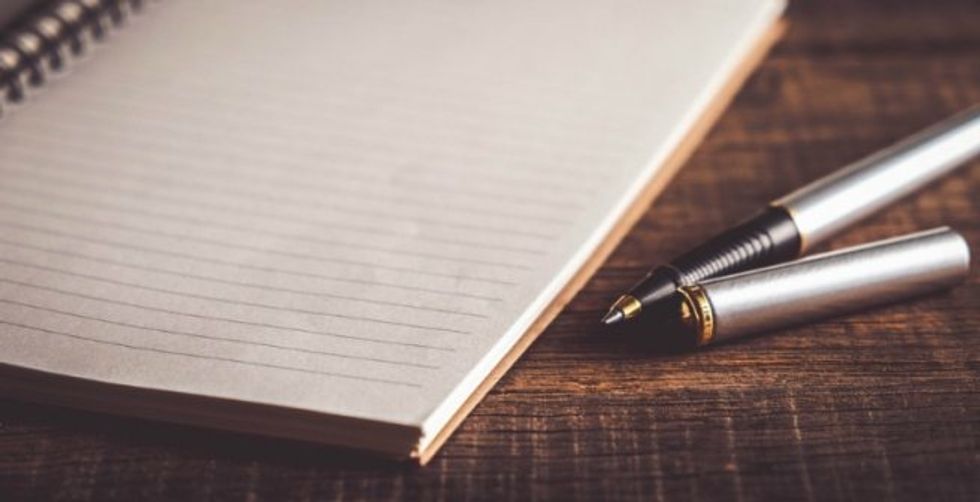The first thing anyone writing poetry needs to know is that anything is poetry. There is not outline or guideline to have the perfect poem. I am simply offering some tips on how to get the creative energy flowing.
- Getting Inspiration
Sometimes you know that you want to write something but you're not entirely certain what to write about. I find it helpful to go for a walk, look though pictures, or reading other poems. Being with nature has always proven to be a source of inspiration, just ask any romantic poet. It can be as simple as taking a walk or sitting on your back porch. I personally use looking through pictures for most of my inspiration. I will be looking through social media and all of a sudden get struck with an idea or I will go onto Google and search something random and make a poem out of it. Each poem doesn't need to be a masterpiece: the key is to just get the creativity flowing. The most obvious answer is reading other poets. I am not saying to rip-off anyone's ideas, but it is good to get a grasp on how people formulate their thoughts through poetry. This can stir some inspiration for what you could do with the same word or topic.
- Getting Started
If you have seen any motivational sayings, you will most likely already know that the most difficult part is getting started. Trust me, once you get started it becomes as easy as breathing to continue. I tend to write my poems on my computer then print them out; you can use whatever method you feel most comfortable with. After you have found your inspiration, writing comes next. I know some people may want to plan out what exactly they are going to write; however, I am suggesting not to. I have found that overthinking poetry leads it to come out ingenuine. What you want to do is simple: write. It can be two words or five lines of prose or a whole epic, but you need to write. Do not worry about it being bad because it probably will be. Let all the crappy writing out first, it is how you learn. So, write until you feel you have nothing else to say about that subject.
- Editing Your Work
This step may seem daunting at first, but it is nothing to be scared off. Most successful writers edit their work before it is seen by others. If they don't have to, they must be superman. To edit, you need to take a step away from your work. An objective eye is needed for this step: nobody wants to dismantle their work, especially if it is personal. You need to pretend you are looking over someone else's work in order to critique it and fix what needs fixing.
How do you know what needs to be fixed though? For beginner poets, the first draft is most likely very matter of fact or is filled with too much literary devices to discern what the true meaning is. You do not need to contain anything in your poem regarding flowery language or rhymes. However, you should make sure your poem is readable and only has lines that add value to the poem. It can be difficult to edit lines you love, but are just unnecessary or detract from the overall flow of the poem. There is a famous saying for this "kill your darlings." This is why you need to look at your work objectively: you won't want to kill your darlings. I'm sorry to say that I can't tell you exactly what needs to be cut or edited because I am not reading your work. It is an important skill to edit your own work, learn what works and what doesn't.
The truth is that editing and writing poetry take practice. You learn by doing. But like I said earlier, the hardest part is getting started. No one is going to write great poems all the time, it may take months to even come out with a single decent one. You can't give-up though, you need to just keep writing.




 Energetic dance performance under the spotlight.
Energetic dance performance under the spotlight. Taylor Swift in a purple coat, captivating the crowd on stage.
Taylor Swift in a purple coat, captivating the crowd on stage. Taylor Swift shines on stage in a sparkling outfit and boots.
Taylor Swift shines on stage in a sparkling outfit and boots. Taylor Swift and Phoebe Bridgers sharing a joyful duet on stage.
Taylor Swift and Phoebe Bridgers sharing a joyful duet on stage.












